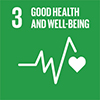In Ireland, approximately 3,600 women are diagnosed with breast cancer every year, making it the most common cancer in women in Ireland other than skin cancer.
It is well known that oestrogen has an impact on breast cancer development and many of the drugs commonly prescribed to treat breast cancer aim to reduce the levels of oestrogen or block its action. Unfortunately, not all patients respond in the same way to treatment, with some having a more positive response to others.
A recent study from RCSI set out to analyse why patients respond differently to treatment and what role other hormones, such as androgens, play in the progression of breast cancer in the body.
The study demonstrates, for the first time, a dynamic steroid response to standard of care therapy linked to long-term patient outcomes. This timely research highlights the therapeutic potential of steroid profiling in postmenopausal breast cancer patients to optimise individual patient care and improve overall survival.
According to the World Health Organisation, 2.3 million women worldwide were diagnosed with breast cancer in 2020. With incidence rates of the disease ever increasing, it is imperative to define more personalised treatment options and surveillance for breast cancer patients. The findings from this project lay the foundations for further studies in larger patient groups to improve outcomes in breast cancer treatment.
The study entitled 'Steroid Ligands, The Forgotten Triggers of Nuclear Receptor Action; Implications for Acquired Resistance to Endocrine Therapy', is published in Clinical Cancer Research. Dr Marie McIlroy, Lecturer in Endocrine Oncology Research at RCSI was senior author on the paper.
The study was funded by the Beaumont Cancer Research and Development Trust and carried out by researchers from RCSI in collaboration with the Applied Bioinformatics of Cancer, Institute of Genetics and Cancer, University of Edinburgh Cancer Research Centre; Manchester University, NHS Foundation Trust; Department of Pathology, Beaumont Hospital, Dublin and Charles University, Pilsen, Czech Republic.
RCSI is committed to achieving a better and more sustainable future through the UN Sustainable Development Goals.

